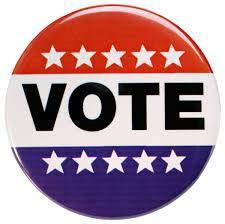Butler County wet/dry votes scheduled for Sept. 27
Though cities in Butler County are prohibited by state law from imposing regulatory licensing fees on the sale of alcohol, the three movements to go wet in Morgantown, Woodbury and Rochester are not expected to slow down.
Morgantown Mayor Billy Phelps said he doesn't think the fact that no city in the county can levy regulatory licensing fees on alcohol sales will play much of a role in the upcoming ballot. This fact was well-known leading up to January's countywide wet/dry vote in which alcohol sales were rejected, he said.
"It was made pretty prevalent that it wasn't going to be a tax base for anyone," he said.
Because of this, Phelps said he is remaining neutral on the issue.
"If there was money to be made on the city's part, I would be very vocal about it," he said.
By state law, the city would still be able to charge businesses a fee for licenses to sell alcohol.
To levy a regulatory fee on sales, a city must be a "qualifying city" or be in the same county as a qualifying city. Doug Hogan, who leads the public affairs office in the Kentucky Public Protection Cabinet, said the list of cities allowed to levy regulatory licensing fees is composed of cities that were third- or fourth-class cities August 2014.
A Kentucky League of Cities website said third-class cities have a population of 8,000 to 19,999, and fourth-class cities have a population of 3,000 to 7,999.
In the 2010 census, Morgantown's population was 2,394, Rochester's was 152 and Woodbury's was 90.
Edmonton, which recently legalized alcohol sales, found out it would not be able to attach the fee to sales but went ahead and approved a city ordinance to allow the sale.
Legalizing alcohol sales, though not as profitable as it would be if the city were allowed to levy regulatory fees, would not be a burden on the city because he thinks the county would be responsible for regulating alcohol sales in the city, Phelps said.
"I don't believe that it can hurt us in any way," he said.
Butler County Judge-Executive David Fields said he isn't sure who would be responsible for regulating sales in any city that goes wet.
The wet/dry ballots for Woodbury, Morgantown and Rochester are scheduled for Sept. 27, he said. All three will be in the Butler County Courthouse, he said.
"It's not going to be very profitable to them because they can't collect taxes on them," Fields said. "I'm thinking they're hoping that eventually the legislature will allow them to (levy licensing fees)."
Robert Smith, a code enforcement officer in Cave City, which went wet in December 2015, said Cave City has been responsible for regulating its own alcohol sales. "The county doesn't regulate what goes on in the cities," he said.
Josh Hampton, who is involved with the movements to legalize alcohol sales in the three Butler County cities, said he remembers the fact that Butler County wouldn't be able to levy regulatory license fees on alcohol sales being part of the public discourse leading up to the January ballot.
He said some people are still interested in going wet.
Even if funding the regulation of alcohol is a strain on the county or any individual city, Hampton said he expects going wet to pay off eventually.
He called legalizing alcohol sales "a good first step toward increased tourism and increased industrial development," adding that going wet could potentially lead to more businesses opening in the county and more money being spent locally.
"I think it has to be viewed as an investment," he said. "There's maybe going to be an upfront expense, but over time I think it will pay for itself."
By Jackson French
Bowling Green Daily News
Kentucky News Press
- Log in to post comments



























